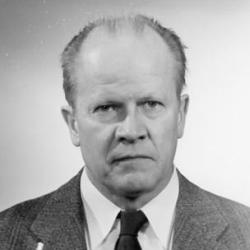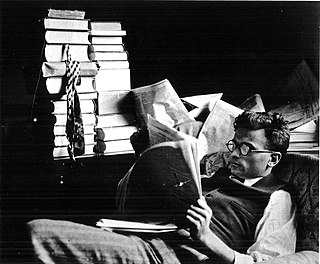Related Research Articles

Goldwin Smith was a British historian and journalist, active in the United Kingdom and Canada. In the 1860s he also taught at Cornell University in the United States.

The College of Arts and Sciences is a division of Cornell University. It has been part of the university since its founding, although its name has changed over time. It grants bachelor's degrees, and masters and doctorates through affiliation with the Cornell University Graduate School. Its major academic buildings are located on the Arts Quad and include some of the university's oldest buildings. The college offers courses in many fields of study and is the largest college at Cornell by undergraduate enrollment.

William Foote Whyte was an American sociologist chiefly known for his ethnographic study in urban sociology, Street Corner Society. A pioneer in participant observation, he lived for four years in an Italian community in Boston while a Junior Fellow at Harvard researching social relations of street gangs in Boston's North End.

The Mondragon Corporation is a corporation and federation of worker cooperatives based in the Basque region of Spain.
Anil Nerode is an American mathematician. He received his undergraduate education and a Ph.D. in mathematics from the University of Chicago, the latter under the directions of Saunders Mac Lane. He enrolled in the Hutchins College at the University of Chicago in 1947 at the age of 15, and received his Ph.D. in 1956. His Ph.D. thesis was on an algebraic abstract formulation of substitution in many-sorted free algebras and its relation to equational definitions of the partial recursive functions.

Michael Garfield Smith OM was a Jamaican social anthropologist and poet of international repute.

Unisinos is a Brazilian private Jesuit university founded in 1969. Its main campus is located in Southern Brazil, in the city of São Leopoldo, state of Rio Grande do Sul. Unisinos has more than 30,000 students in its 91 undergraduate programs, 19 academic master's programs, 6 professional master's programs, and 14 PhD programs, with six schools – Polytechnic, Business, Law, Health, Creative Industry, and Humanities.
Paul McEuen is an American physicist. He received his B.S. in engineering physics at the University of Oklahoma (1985), and his Ph.D. in applied physics at Yale University (1991). After postdoctoral work at MIT (1990–1991), he became an assistant professor at the University of California, Berkeley. He moved to Cornell University in 2001, where he is currently the Goldwin Smith Professor of Physics. He is one of the experts on the electrical property of carbon nanotubes and is a member of the National Academy of Sciences.
Victor G. Nee is an American sociologist and professor at Cornell University, known for his work in economic sociology, inequality and immigration. He published a book with Richard Alba entitled Remaking the American Mainstream proposing a neo-assimilation theory to explain the assimilation of post-1965 immigrant minorities and the second generation. In 2012, he published Capitalism from Below co-authored with Sonja Opper examining the rise of economic institutions of capitalism in China. Nee is the Frank and Rosa Rhodes Professor, and Director of the Center for the Study of Economy and Society at Cornell University. Nee received the John Simon Guggenheim Fellowship in 2007, and has been a visiting fellow at the Russell Sage Foundation in New York ( 1994–1995), and the Center for Advanced Study in the Behavioral Sciences (1996-1997). He was awarded an honorary doctorate in Economics by Lund University in Sweden in 2013.
Steven Laurence Kaplan is professor emeritus and former Goldwin Smith Professor of European History in the Department of History at Cornell University. His primary fields of expertise are French history, the history of markets, economic regulation, and political economy, and the history of food, specifically the history of bread, the grain trade and provisioning.

Lauriston Sharp was a Goldwin Smith Professor of Anthropology and Asian Studies at Cornell University. He was the first person appointed in anthropology at the university, and he created its Southeast Asia Program, research centers in Asia and North and South America, a multidisciplinary faculty and strong language program. He was a founding member of the Society for Applied Anthropology and a founding trustee of the Asia Society.
Henry Edward Guerlac was an American historian of science. He taught at Cornell University where he was the Goldwin Smith Professor of History and a member of the Department of History.
Louise Lamphere is an American anthropologist who has been distinguished professor of anthropology at the University of New Mexico since 2001. She was a faculty member at UNM from 1976–1979 and again from 1986–2009, when she became a professor emerita.

Mario Einaudi was an Italian scholar of political theory and European comparative politics.
George E. Cheney is an educator, writer, speaker, facilitator, and consultant. Together with his wife and colleague, Sally Planalp, he has a primary residence in Moab, Utah. Cheney is an internationally recognized leader in the area of organizational communication and focuses his work on the improvement of organizational processes with special attention to the triple bottom line and the pursuit of socially and environmentally responsible economic development. Cheney draws from a variety of disciplines and professions in his work, including sociology, economics, political science, philosophy, marketing, management, and applied ethics.
Tōichirō Kinoshita is a Japanese-American theoretical physicist. Kinoshita studied physics at the University of Tokyo, earning his bachelor's degree in 1947 and then his PhD in 1952. Afterwards he spent two years as a postdoctoral researcher of the Institute of Advanced Study, Princeton, New Jersey, and then one year at Columbia University. His research interests include quantum field theory, and the Standard Model.
Norman Long is a British anthropologist. He conducted important fieldwork and made significant theoretical contributions through his application of insights from social anthropology in development studies. Anthropology was in the wake of decolonisation often seen as tainted by colonialism and not relevant in a development discourse. Long offered another perspective that can not be seen as bound by time and place. He advocated an actor-oriented perspective on development and thus formulated a critique on centralist biases in development theory.
Robert John Smith (1927–2016) was an American anthropologist who taught at Cornell University, specializing in the anthropology of Japan. In 1974, he was named Goldwin Smith Professor of Anthropology. The Japanese government bestowed the Order of the Rising Sun on him in 1993. He was President of the Association for Asian Studies in 1988. He retired in 1997.
Francis L. K. Hsu was a China-born American anthropologist, one of the founders of psychological anthropology. He was president of the American Anthropological Association from 1977 to 1978.
References
- Davydd Greenwood - Goldwin Smith Professor of Anthropology. Cornell University. Accessed 2014-02-27.
- Town Twinning. Cornell University Institute for European Studies. Accessed 2011-01-04.